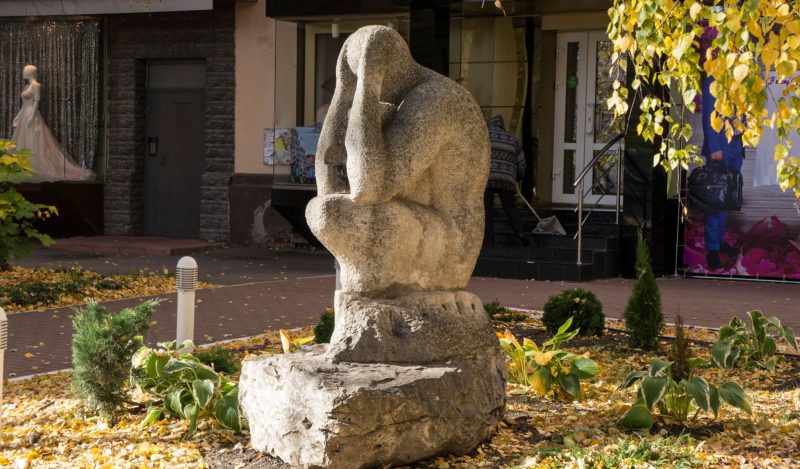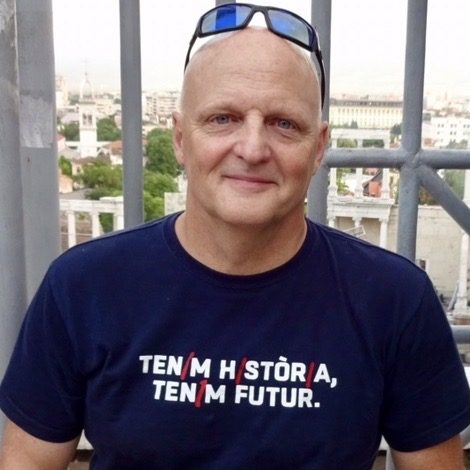A few days back, in a column published in this same space, Jeffrey Tucker wondered out loud if we will ever witness a public reckoning of the numerous crimes committed against the citizenry and our constitution in the name of the “fight against Covid.”
As someone who, like him, was instantly appalled by the killing of innocents and destruction of key precepts of our justice system carried out in the name of protecting the heimat in the days after 9/11, I too have long waited for a cathartic articulation of the many ways in which our country’s leadership, with the mostly passive acceptance of the citizenry, committed mass acts of murder and maiming against the 99.9% of the people in Iraq, Libya, and Syria, just to name a few places, who had done absolutely nothing to any of us.
My wait has been in vain.
And I fear the wait will be equally in vain for those of us hoping to receive any admission of culpability from the government, its Pharma partners, and the millions of our fellow citizens who gleefully turned into the enforcers of their mostly illegal and certainly immoral edicts.
I think many of these people know, on some level, that they were wrong and that their actions have seriously hurt other people. But I also believe that most of them will never admit it openly and engage in the necessary acts of atonement because they, like most of the rest of us, now live in a post repentance culture.
I still have vivid memories of how on one Saturday afternoon a month—right in the middle of prime weekend play time—my mother would pack my four siblings and I into the station wagon and take us to confession at Saint Bridget’s Church located near the center of town. And also remember vividly how much I hated it, and that the worst part was dreaming up some sins for my 8- or 9-year-old self to confess to the priest.
The older I got, the more annoying it all became, especially in light of the fact that very few of my now adolescent friends were subject to such forced revisions of their moral comportment. They seemed to do mostly what they felt like doing. And I’d be lying if I said there weren’t times when I felt pretty jealous of their seemingly much more carefree ways of moving and acting in the world.
But for better or worse, Mom’s introspection and repentance hook had set, and try as I might, I never fully wiggled myself off the line.
In retrospect, I can see the wisdom of my mother’s forced Saturday marches to the confession booth. As an intelligent person she had more than a few doubts about existing Catholic doctrine, and had to know that as inquisitive and very spirited kids we would have many of our own in due time.
But she still felt it important that we engage in the act of reviewing our own actions in the light of moral precepts—be they Catholic or not—that lay beyond the limits of our own immediate ego desires, and perhaps more importantly, that we internalize the idea that should we come to the realization that we hurt someone through our acts, that it was imperative that we attempt to rectify what we had done.
Maybe I’m blind to their existence, but outside the largely narcissistic and comfortably non-personal woke rituals of remorse (it’s one thing to apologize to Mother Earth for using too many plastic bags when shopping and quite another to look someone in the eye and admit your ignorance, panic, and desire to fit with the crowd during Covid helped destroy someone’s livelihood), I see few institutional pressures in our culture for young people, or anyone for that matter, to undertake the serious and always consequential act of examining their behaviors in the light of moral principles. Just the opposite, in fact.
One obvious reason for this is the decline of the very religious institutions under whose aegis I was forced to engage in such activities.
But fixating on this as the problem, may, in fact, be a case of confusing causes with results.
After all, it couldn’t also be that we have abandoned religious institutions in large numbers precisely because they inexorably force us to engage in moral introspection of a type that runs uncomfortably counter to the broader and stronger currents of our culture.
And what might those be?
Most of all it is the religion of getting ahead which, in our post industrial and in many ways post material age has been transformed from a drive to make and do things that benefit the culture at large, into a relentless game of authoring and re-authoring the self, or to put it even more accurately, the appearance of the self, to fit in with passing and cynically-produced elite-generated notions of what is important.
Morris Berman has argued that America has always been a “country of hustlers.”
The esteemed French historian Emmanuel Todd has described the entire trajectory of the so-called West as being marked by a similar drive to aggrandize the self through the frenzied acquisition of material benefits wherever such benefits were believed to be available.
According to Todd, what made this hustle “work” for as long as it did for the West was the fact that—as incongruous as it may seem to the objects of its campaigns of plunder—it was driven by a moral imperative.
Echoing Weber, he argues that Protestantism imbued Western capitalism, especially in the US, with a transcendent mission, with all that that entails in terms of establishing and institutionalizing the precepts of a universal cultural matrix, and engendering a culture of excellence that responded to non-transactional concepts of virtue, again, however self-serving those same concepts of “virtue” might have been in reality.
That’s all gone now, he argues, owing to the dissolution of what he calls America’s foundational WASP matrix of values.
It could be said that we are now a nation of—to use a phrase that not coincidentally has come into frequent usage over the last thirty years—“independent contractors” who cannot rely on anyone else for our survival and who, as a result of the constant stress this causes, and the need to constantly market the self to others for survival, have increasingly lost the ability to think in anything but the most banal utilitarian terms.
A person who lives in a state of constant stress, unrelieved by the possibility that a transcendent reward might there for him at the end of his travails, is a person who is largely incapable of engaging second-order thinking, a realm that, of course, houses the type of moral introspection I described earlier on.
Our current elites are well aware of the ragged cognitive state of so many of our fellow citizens. Indeed, they go out of their way to promote this mental decay with their de facto control of the information diets of all but the most intellectually confident and intrepid members of society.
What they especially like is the way it reduces people to an essentially Pavlovian state wherein their often damaging and fatal solutions to society’s purported problems (as of course narrativized by the same media they control) are adopted by many people without a second thought.
Is there really any other way to explain the unbelievable spectacle of hundreds of millions of people taking a completely unproven drug to combat a “dreaded disease” that was more or less known, thanks to studies by world-class scholars such as Ioannidis and Bhattacharya, from the very earliest months of 2020 to leave some 99.75% of its “victims” perfectly alive?
So, where do we go from here?
As tempting as it might be for the nostalgic among us to mandate station rides to the confessional on Saturday afternoons for all children under 18, I don’t think that’s the answer.
I do think, however, that that now seemingly ancient practice does hold the kernel of a solution.
The human mind can only really get serious and truly honest about itself, its many mysteries and its myriad flaws, alone and in a state of silence, like the type that inhered in the pews as I prepared to talk to the priest about my shortcomings.
As our elites have, in their rabid pursuit of personal aggrandizement, violently retreated from their solemn responsibility to provide the rest of us with the outlines of a story that takes into account the dreams and aspirations of most members of the society, they have filled the gap, with among other things, heaping servings of noise.
Between this constant ambient bombardment, cell phones, and the distressing parental tendency to schedule every moment of their lives in the hope of providing them with a competitive advantage (see the section on compulsive self-fashioning above), children have little or no time to be absolutely alone with their thoughts and what Robert Coles referred to as their in-built “moral imaginations.”
A good start might be to set out firmly and consciously to give all the people we care for, but especially the young, the license to dawdle alone and deviceless with their thoughts, fears, and yes, also, feelings of failure and shame.
If we were to actually create many more such spaces for introspection, I believe we’d be pleasantly surprised by the fertile, expansive, and life-centering nature of the thoughts, actions, and dreams that would emerge from them.
Published under a Creative Commons Attribution 4.0 International License
For reprints, please set the canonical link back to the original Brownstone Institute Article and Author.



